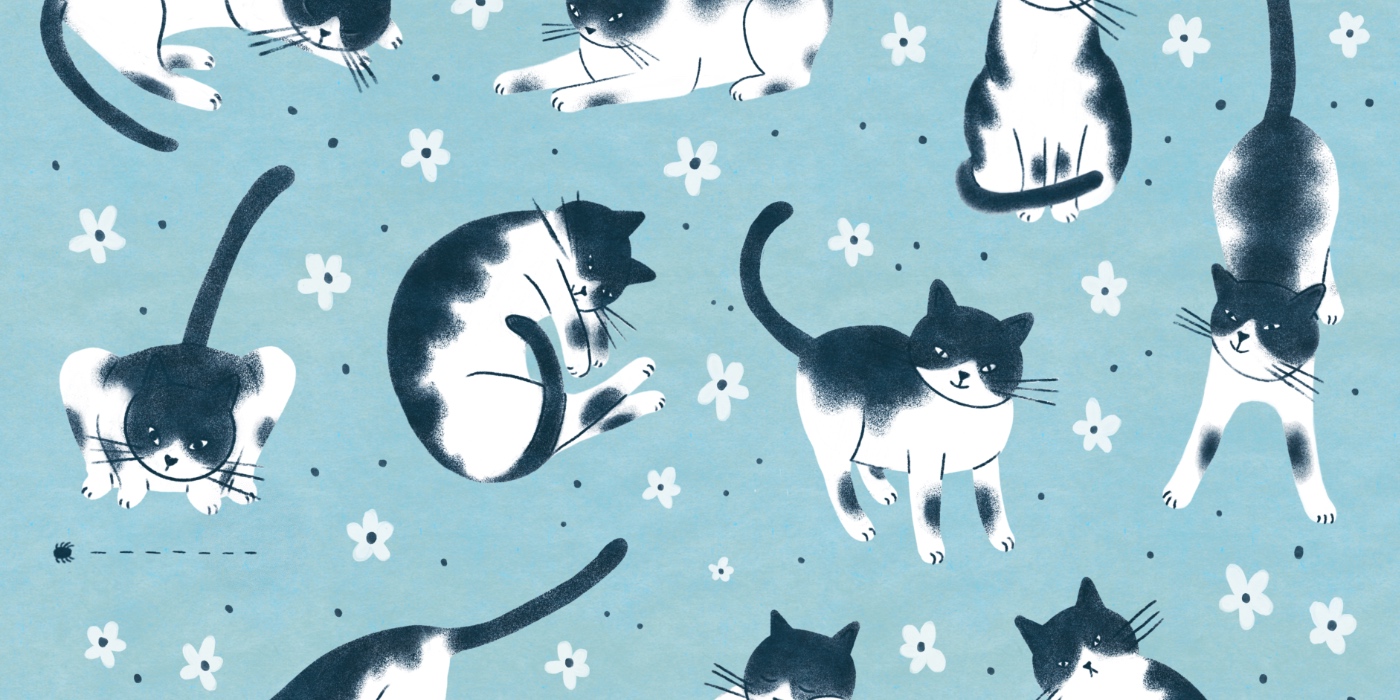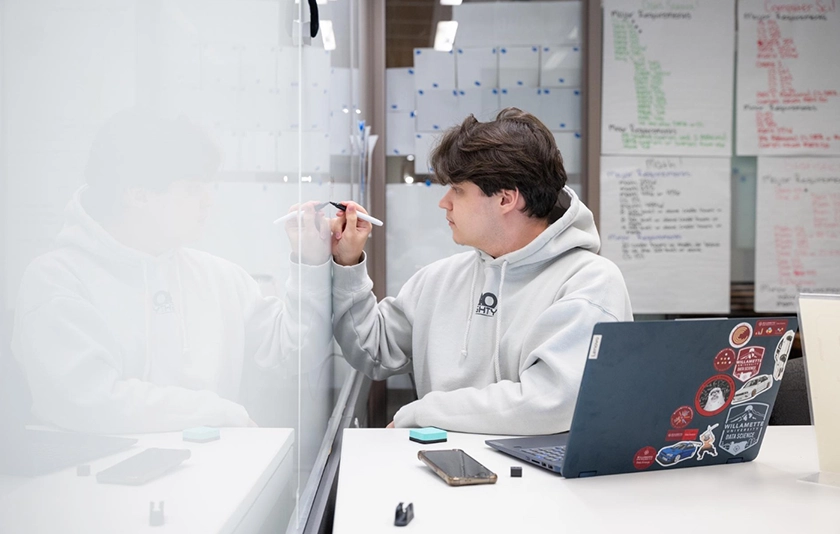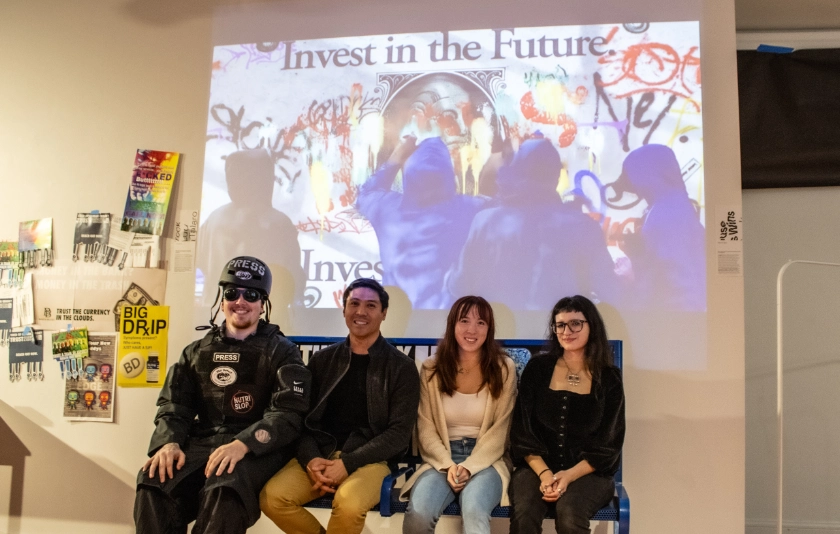
Gretchen Kent BFA’93 credits her time at PNCA with giving her a strong foothold in creative and professional fields, and today she successfully balances her artistic pursuits with her day job as a grantmaker. When she isn’t designing surface patterns for clothing, greeting cards, and other products, Kent is the Foundation Manager at the Autzen Foundation, a charitable organization supporting small nonprofits in education, social services, and arts and culture in Oregon.
As a painting and drawing major, Kent says PNCA was a place where she genuinely felt like an artist and could pursue her creative ambitions. She had the opportunity to learn from some of the best Northwest artists of the time and has many fond memories of fellow students. A pivotal moment came when a PNCA professor candidly told her class that not everyone would become a gallery artist. Rather than discourage her, this insight helped Kent evaluate her path more pragmatically. “I was grateful to hear that,” she says.
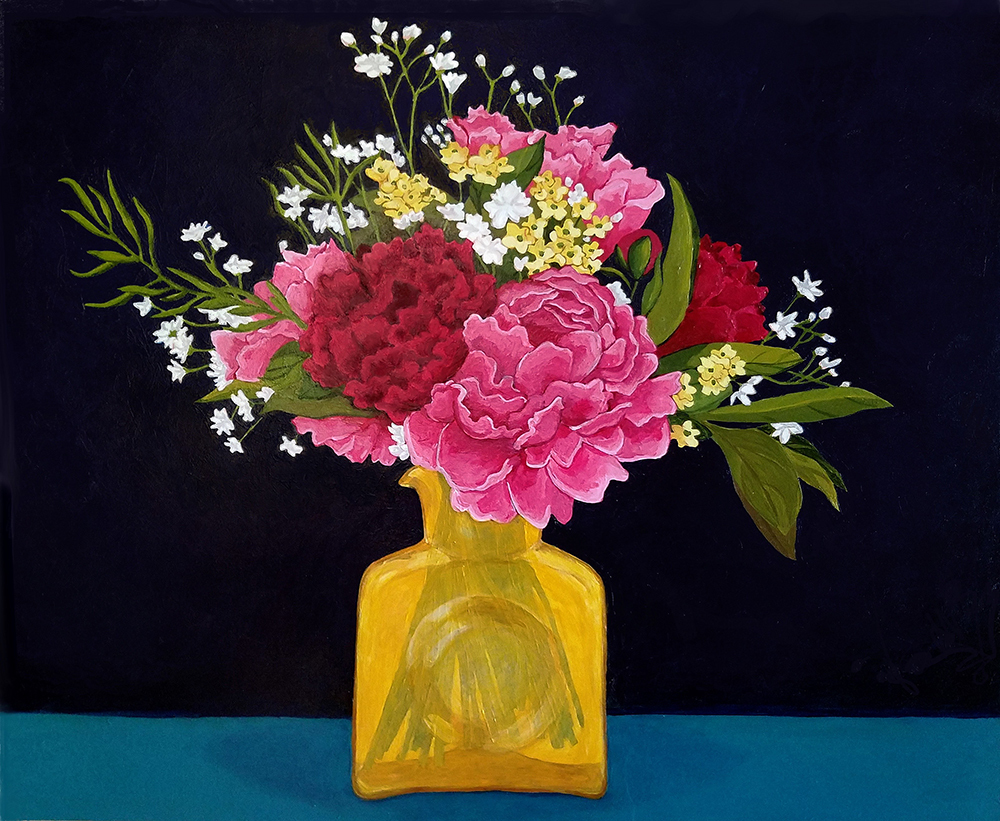
After a few jobs in the creative industry, Kent soon realized that working as a full-time artist was not the right path for her. “I’m also the slowest painter in the world and use the tiniest brush they sell at the art supply store. It just took too long,” she shares. Instead, Kent began to take stock of the professional skills she could draw on to find a new direction.
Kent realized that her student job during her first year at PNCA in the Office of Advancement had given her invaluable skills in fundraising and donor engagement. This experience ultimately prepared her to work for thirteen years at the James F. and Marion L. Miller Foundation, a charitable grant-making arts education organization. Now, at Autzen, she is the sole staff member responsible for facilitating grant applications, monitoring trends in the nonprofit world, and other administrative tasks.
“Artists’ skills are unique compared to those of other professionals.”
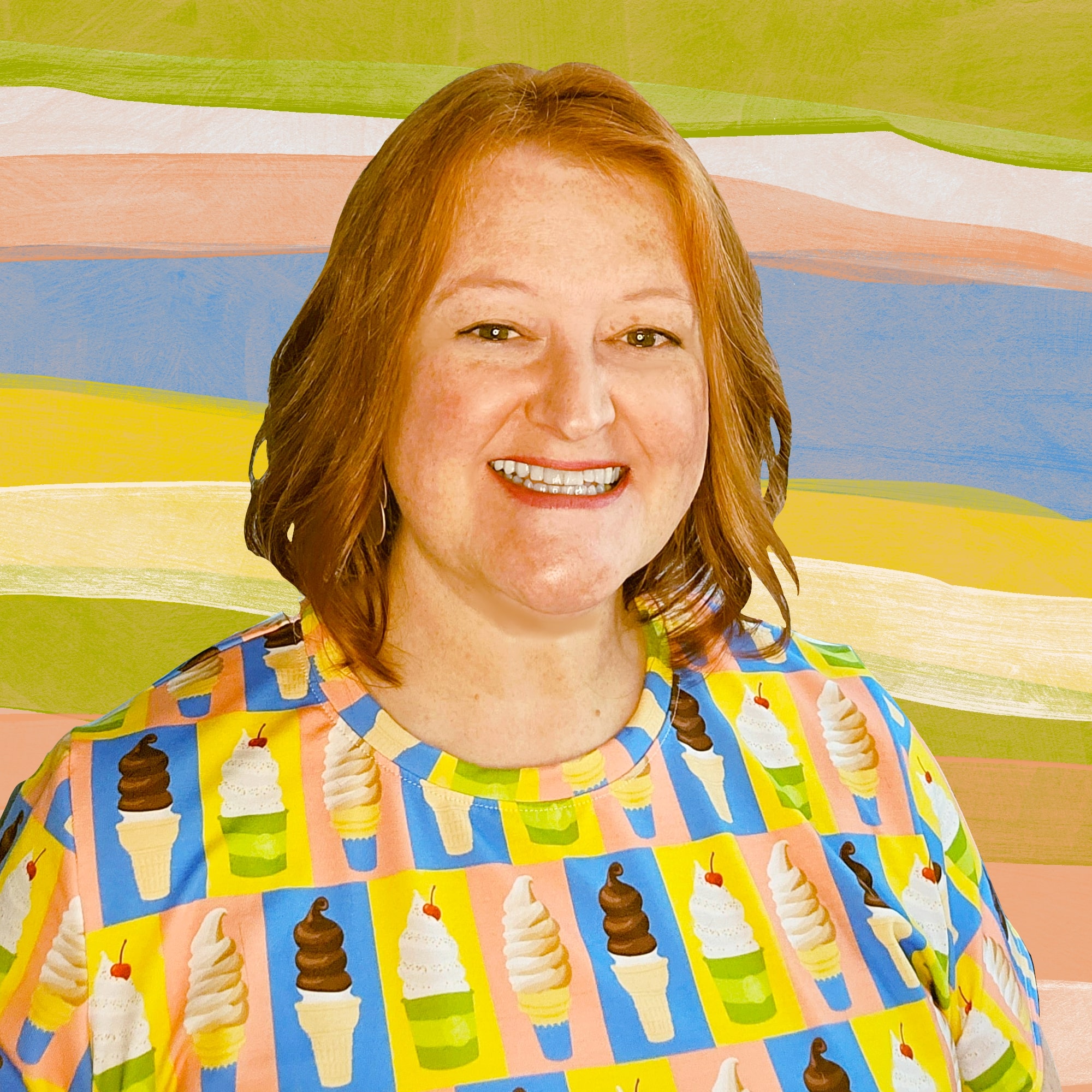
Kent’s story demonstrates how an art education can prepare graduates for diverse career paths while maintaining their creative practice. “Artists’ skills are unique compared to those of other professionals,” she says. “For example, artists are great at taking a project from concept to completion. That skill is essential to my being the sole staffer at a foundation. I'm not scared by the idea of having to create something new.”
In turn, her life as a creative fulfills needs she does not directly receive from her day job, such as personal expression and community. “It’s always been art that provides a sense of community. If they have a new tool, trick, or process that they’ve learned, artists love to share.”
